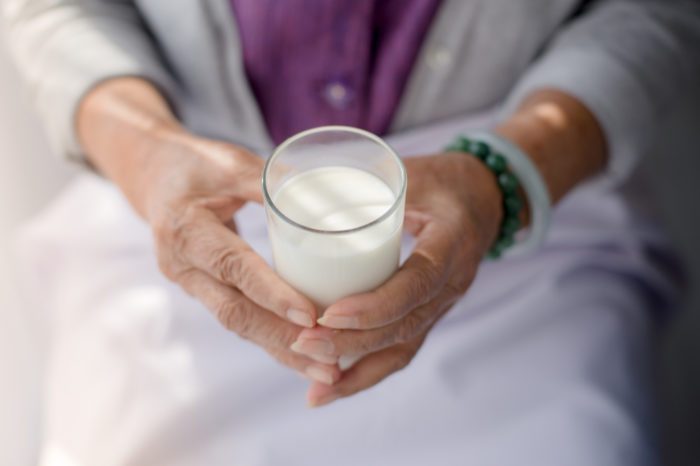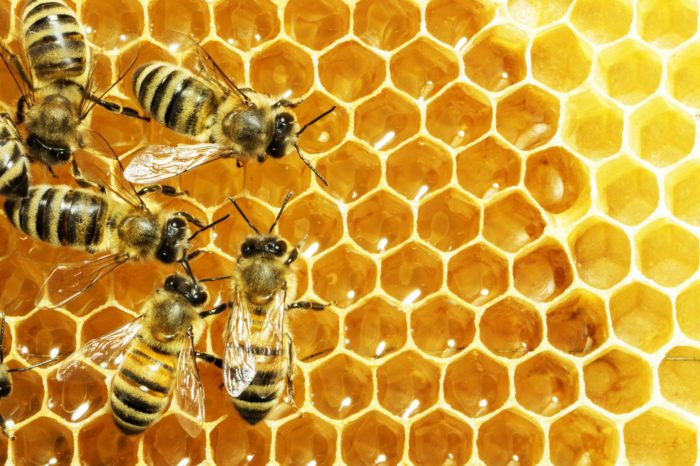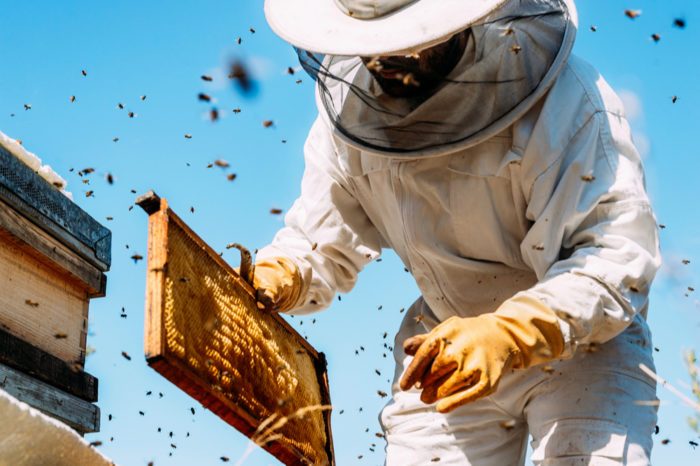Until December 2018, the federal government rolled hemp and cannabis laws together. That all changed with the Farm Bill.
Editor’s Note: This article has been archived 09/09/2019.
That’s right – for decades until 2018, Federal prohibition on THC-rich cannabis also meant prohibition laws against CBD-rich, no-THC, hemp. Until the passage of the 2018 Farm Bill, the federal government determined there was no commercial use for hemp – this despite its incredible versatility.
Strange to think how the laws governing hemp in the US have gone from enforced grows in the early 19th century to outright prohibition and back to praising hemp. While technically some farmers had hemp permits before 2018, there were significant restrictions, with licensing, and federal approval, required. Essentially, the US government had allowed some hemp for research purposes. They did not support it for large scale or commercial operations.
Now, legislation has come full circle, and hemp is legal once again in the US of A. The Farm Bill passed with bipartisan support, and contained legislation to legalize hemp for agricultural production. With the passage of the 2018 Farm Bill, American farmers can jump on board a booming industry, which analysts expect to hit $10.6 billion by 2025.
Still, it takes a while for a federal bill to roll out into state law. Where does hemp policy sit in each state across the country? Here is the state of hemp, updated for 2020.
State by State Hemp Laws in 2020
Alabama: In 2019, a new law removed hemp and hemp-derivatives, including CBD, from the state’s controlled substances list. CBD products are now available for sale at pharmacies, gas stations and the like. In 2019, farmers in the state planted the first legal hemp crop since 1937. Alabama also declared its intent to the United States Agricultural Department (USDA) to carry current rules into 2020.

Welcome Sign Reading “Sweet Home Alabama”
Alaska: As of February 2018, the state issued a unanimous approval for industrial hemp production. Alaska is also carrying its cultivation rules, created under a 2014 pilot project, into 2020.
Arizona: Legislation passed in 2018, giving the Arizona Department of Agriculture responsibility for the approval of hemp pilot programs for propagation, processing, manufacturing, distribution, and market research. Pilot programs began in August of 2019. According to the final report from 2019, Arizona cultivators planted over 5,000 acres of hemp last year, but 32 percent of lots tested were found non-compliant.
Arkansas: The state is still operating under the 2014 Farm Bill regulations, which covered hemp for research programs only. In 2019, the state-approved 3,500 acres of hemp, but most reports indicated only a third of these were planted and harvested.
California: State lawmakers signed the California Industrial Hemp Program into law in January 2017. It is now legal to cultivate industrial hemp under the Division 24 of the California Food and Agricultural Code. Growers, breeders, and others must register under the cultivation program. Unlike other states, California doesn’t ban the import of industrial hemp seed or plants. California has nearly 300 licensed cultivators as of September 2019.
Early Adopter: Colorado
Colorado: Colorado has been growing hemp for over five years as of 2020. According to the Colorado Sun, in 2019, more than 2500 registered Colorado farmers planted 80,000 acres of hemp. There are no restrictions on how much acreage of industrial hemp a single business may grow. However, all seeds must come from a source certified by the Colorado Department of Agriculture. All farmers still must apply via the Commercial Industrial Hemp Registration, and the fees are nonrefundable.
Connecticut: The Connecticut Hemp Research Pilot Program is well underway and will eventually roll over into a Connecticut Department of Agriculture program, following approval from the USDA. Licenses are required, as well as a state, and federal, criminal records check.
Delaware: In early 2020, the USDA approved the State of Delaware Plan for a Domestic Hemp Production Program. According to the state’s numbers from 2019, the pilot program only had 18 active producers, including 82.36 outdoor acres and 419,620 square feet for indoor cultivation.
Florida: Industrial hemp production was restricted to pilot research programs in the state of Florida until recently when the USDA approved the state management plan. As of July 1, 2019, Florida growers were free to cultivate hemp under the state’s new program. The state also has policies for the production and sale of CBD.
Georgia: Georgia has seen significant change in two years. It now operates a federally approved hemp cultivation program. Licenses are required, as is the case with other states. Furthermore, the program has space for universities and colleges to study the cultivation of hemp.

Carvings watching over the beach in Hawaii.
Hawaii: In 2018, state lawmakers made the industrial hemp pilot program a permanent one. They also removed restrictions on hemp, which were leftover from the state’s marijuana prohibition. In 2019 there were thirty growers. However, the state destroyed over fifty percent of tested crops because they contained higher-than-legal THC levels.
Idaho: Currently, the state has no industrial hemp program nor any hemp pilot programs underway. Elected officials continue to issue statements against its legalization. In February 2020, pro-hemp legislation (SB 1345) passed, but by March, a House Committee had decided against going forward with it. Hemp, and all its derivatives, remains illegal in Idaho.
Illinois: Lawmakers approved the hemp act in 2018. Farmers must apply and purchase a license through the Department of Agriculture. Costs include a $100 one time application fee and $1000 for the permit.
Indiana: In 2018, the Indiana government had indicated it intended to create a sub-department within the Department of Agriculture to manage the production of hemp within the state. By 2020, cultivators in the state can grow, produce, and possess, hemp. It’s legal for both commercial and research purposes.
Finally Hemp In Iowa
Iowa: It has taken a few years, but Iowa has finally sent off its proposed hemp program to the USDA for approval. Regulators are hopeful this will still allow for the planting of a hemp crop in the state as of spring 2020.
Kansas: Industrial hemp is allowed only for academic research, as approved by the department of agriculture under a specific agricultural pilot program.
Kentucky: After the passage of the 2014 Farm Bill, Kentucky passed legislation to create the Industrial Hemp Research Pilot Program through the Kentucky Department of Agriculture. This has now evolved into a licensing program that allows cultivators to grow hemp for “any commercial purpose.” In 2019, the hemp crop in the state tripled over the previous year’s levels.
Louisiana: A little behind other states in the region, but not by much. As of November 1, 2019, the state had submitted its hemp cultivation program proposal to the USDA. The good news as of the date of publishing? The new rules in Louisiana “Exempts legally allowed industrial hemp and industrial hemp-derived CBD products from the Uniform Controlled Dangerous Substances Law.”
A Long History of Hemp
Maine: Maine has actually had a hemp growing program on the books since 2013. Farmers can grow hemp for commercial purposes, so long as they hold a license from the Commissioner of Agriculture Food and Rural Resources. In 2019, the state approved 2,700 acres of hemp.
Maryland: Maryland now allows licensed individuals to plant, grow, harvest, possess, process, sell, or buy industrial hemp in Maryland. It also allows for the cultivation of hemp for research purposes.
Massachusetts: The state’s Department of Agricultural Resources manages hemp production both for commercial purposes and under a research program. Processors and growers must apply for a license.
Michigan: The state supports industrial hemp research, as regulated under the Michigan Department of Agriculture and Rural Development. In 2020, the state also launched the Ag-Pilot Program to grow hemp through a licensee program.
Minnesota: Minnesota Department of Agriculture Allows for the cultivation of industrial hemp, under regulations laid out by the 2018 Farm Bill.
Even After the Farm Bill, You Can’t Grow Hemp in Mississippi
Mississippi: Currently, no industrial hemp program, nor hemp pilot programs, are underway within the state.
Missouri: As of 2018, Missouri made it legal “for any person who has received an industrial hemp license to grow, harvest, cultivate, and process industrial hemp.”
Montana: Montana allows for commercial production of hemp. A state-issued hemp license is $50, and the Hemp Pilot Program Participation costs $400. Fingerprint submissions and a background check are mandatory. After the 2018 growing season, Montana was the top producing state with over 22,000 acres harvested. In 2019, they had 258 registered cultivators.
Nebraska: In 2019, the state removed hemp from the controlled substances act, and allowed for the production of hemp for many purposes, including fiber, grain, or cannabidiol (CBD).
Hereford cattle in Nebraska
Nevada: A lot has changed in a few short years for Nevada — for recreational, medical cannabis, and hemp. Still, Nevada is operating under a pilot program for hemp production. It is also possible for universities, colleges, and the Nevada Department of Agriculture to grow hemp for research purposes. Eventually, the pilot program will transform into a proposal for the USDA.
New Hampshire: Thus far, the state has only allowed hemp production for research purposes and only as coordinated under the careful eye of the New Hampshire Department of Agriculture, Markets and Food.
New Jersey: New Jersey was within the first round of approvals issued by the USDA in December 2019. It is now legal to grow and produce industrial hemp within the state.
New Mexico: New Mexico approved the development of a hemp cultivation program with licensing requirements and associated fees, under federal regulation. It is still operating as a “commercial research” program. The state has granted permits for 400 growers, encompassing 8,000 acres of hemp.
Hemp Laws in New York
New York: In 2017, the state opened up the sale, distribution, transportation, and processing of industrial hemp under an Industrial Hemp Research Pilot Program. Although the evolution of the hemp program isn’t clear, by the end of the growing season in 2019, the state had over 400 licensed growers.
North Carolina: The production of industrial hemp has been technically allowed for many years now for research purposes. In 2020, North Carolina was yet another state which indicated it would be extending the rules from 2019 to the current growing season.
North Dakota: Industrial hemp is allowed only for academic research, as approved by the department of agriculture under a specific agricultural pilot program. To apply for a license, growers much submit a fee, fingerprints, a background check, and follow several other security measures.
Ohio: The Ohio Hemp program legalizes the cultivation, processing, production, and sale of hemp for “fiber, grain production, and dietary needs in Ohio.” The state has clear rules on the sale of CBD: it is legal to sell CBD products.

Not All Hemp is Welcome to Oklahoma
Oklahoma: Industrial hemp is allowed under the Oklahoma Industrial Hemp Agriculture Pilot Program. The cultivator must have an established relationship with a “University or college that belongs to the Oklahoma State System of Higher Education and has a plant science curriculum.”
Oregon: Thanks to the 2018 Farm Bill, the state has a significant hemp program. In 2019 it officially had 2,500 licensed growers. It allows commercial production of hemp by producers with the appropriate licenses. The department processes applications on an annual basis, with the yearly deadline on December 31.
Pennsylvania: Industrial hemp is allowed only for academic research, as approved by the department of agriculture under a specific agricultural pilot program. In 2019, the state removed the caps on the number of permits, and it now has over 324 issued. Last year that translated into 4,000 acres of hemp.
Rhode Island: As of 2016, under the Hemp Growth Act, Rhode Island allowed for industrial hemp, provided the growers were approved. The Department of Agriculture issues the licenses.
South Carolina: In the spring of 2020, the USDA finally approved the state’s proposed hemp program plans. That means cultivation for commercial purposes will begin in the 2020 season.
South Dakota: Currently, no industrial hemp grow program, nor hemp pilot programs are underway within the state. In 2019, policymakers passed House Bill 1191, which was slated to “legalize the growth, production, and processing of industrial hemp and derivative products in the state,” but the governor vetoed it immediately.
Where’s the Most Hemp in the Country? Tennessee.
Tennessee: It is legal to cultivate hemp in the state. The Tennessee Department of Agriculture oversees the program. According to some reports, Tennessee has the highest number of licensees (2,913) in the United States.
Texas: Texas submitted its proposal to the USDA before the end of 2019, and the federal department approved it on January 27, 2020. Applications are now open for the 2020 season.
Utah: In early 2018, Utah approved industrial hemp farming. The Utah Department of Agriculture has issued a set of regulations. The Utah Department of Agriculture and Food requires licenses for those who which to cultivate, process, or sell hemp products.
Vermont: The state allows for the production of hemp for commercial purposes. Applications are annual, and there are “no residency requirements, minimum acreages, or limitations on the numbers of registrants.”
Virginia: The state has approved the cultivation of industrial hemp for both research and academic purposes. The department of agriculture allows this, under a specific agricultural pilot program. There are now more than 1,300 registered growers.
Washington: Industrial hemp is allowed only for academic research, as approved by the department of agriculture under a specific agricultural pilot program.
West Virginia: As of 2018, West Virginia has allowed farmers to grow industrial hemp in the state, provided they adhere to the specific regulations and obtain the appropriate licensing.

The State Building of West Virginia
Wisconsin: Industrial hemp is now allowed for commercial purposes, provided the farmer receives a license. They have also updated the state’s controlled substances act and amended the definition of an agricultural commodity to include hemp.
Wyoming: It is now legal to plant, grow, harvest, possess, process, and sell industrial hemp in Wyoming.
What’s Next For America After the Farm Bill?
As the federal government works to align the regulations contained within each department, it’s safe to assume there will be few hold outs across the country. As more states change their laws, it will be easier to expand production. According to Forbes, in 2019, hemp production quadrupled to more than 500,000. Soon, America will be a nation of hemp.






